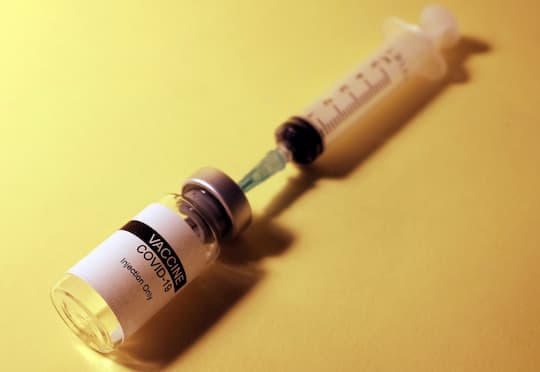Some people may not need a second dose of an approved COVID-19 vaccine.
One dose of an authorized COVID-19 vaccine is enough for those who have already recovered from the infection, a new study reveals.
A person with previous exposure to COVID has a much better response to a single shot compared to uninfected individuals.
This due to the immune memory and higher levels of antibody production.
The fact that the second dose for COVID survivors is not needed could be a sensible option to stretch the vaccine supply.
Furthermore, individuals with prior COVID infection could be rescued from side-effects of a second dose which are likely to be stronger than the first shot.
Professor Viviana Simon, study co-author, said:
“We showed that the antibody response to the first vaccine dose in people with pre-existing immunity is equal to or even exceeds the response in uninfected people after the second dose.
For that reason, we believe that a single dose of vaccine is sufficient for people who have already been infected by SARS-CoV-2 to reach immunity.”
After the approval of the Pfizer-BioNTech and Moderna COVID vaccines by the U.S. Food and Drug Administration (FDA) in December 2020, millions of Americans have received one of the vaccines.
These vaccines have been reported to be highly effective against COVID infections after the second shot, with at least three weeks in between doses.
The two vaccines are well-tolerated for most people, showing no serious side effects, however, in some cases extra medical care is needed.
For this study, a group of adults with previous COVID infection were compared with another group who had no pre-existing immunity.
Within days after the first dose of vaccine, those with a history of COVID infection developed antibodies 10 to 20 times more than uninfected people.
In some cases the level of immunity was even higher than those uninfected people who received two doses of vaccine.
Professor Florian Krammer, the study’s first author, said:
“These findings suggest that a single dose of vaccine elicits a very rapid immune response in individuals who have tested positive for COVID-19.
In fact, that first dose immunologically resembles the booster (second) dose in people who have not been infected.”
The research team have also compared the adverse reactions after vaccination.
Both groups displayed symptoms such as swelling, pain, and skin redness after the first injection.
However, subjects with pre-existing immunity were more likely to experience headaches, fever, chills, fatigue, joint pain, and muscle aches than the other group.
The adverse effects to the first dose in subjects with pre-existing immunity were as severe as uninfected people experienced from the second shot.
The strong reaction is probably because the immune cells are already familiar with the virus’s spike protein and therefore the immune cell response is much stronger to the vaccine.
According to Professor Simon, a serological assay can be used to detect existing antibodies in a person that has already been infected so the booster dose can be avoided.
She said:
“If the screening process determines the presence of antibodies due to previous infection, then a second shot of the coronavirus vaccine may not be necessary for the individual.
And if that approach were to translate into public health policy, it could not only expand limited vaccine supplies, but control the more frequent and pronounced reactions to those vaccines experienced by COVID-19 survivors.”
The study was published in the New England Journal of Medicine (Krammer et al., 2021).

